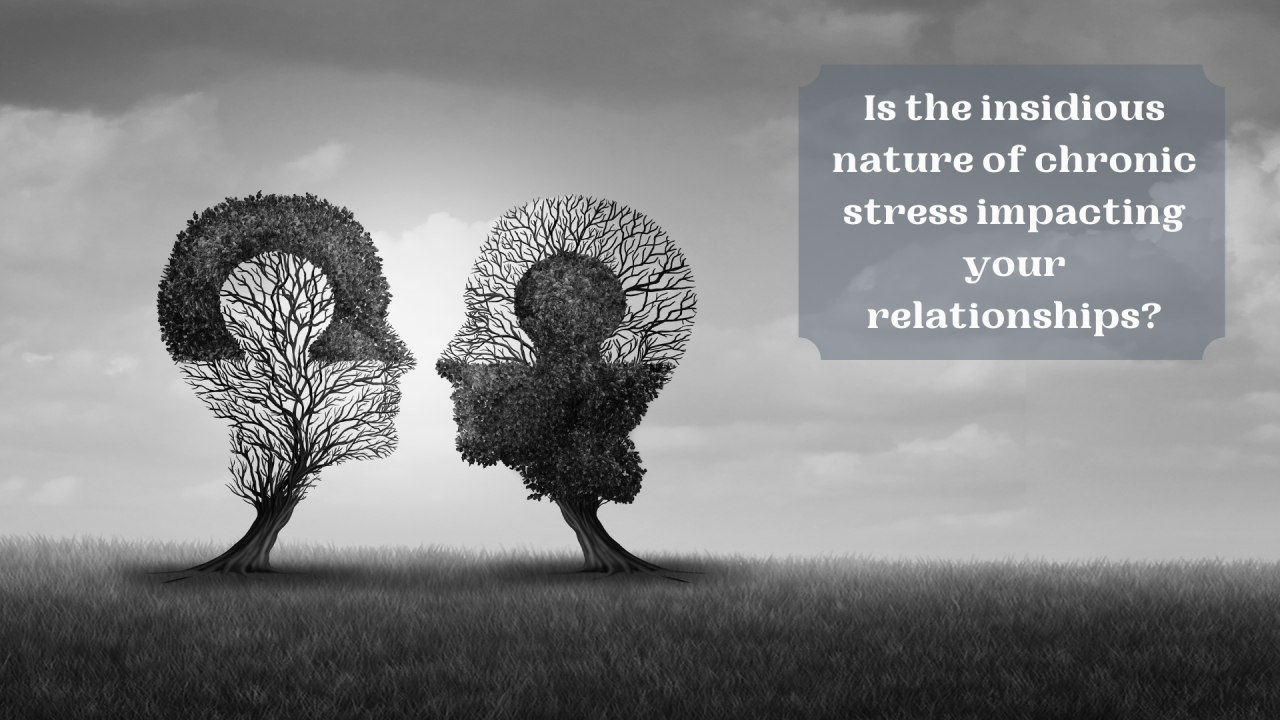
Unraveling the Insidious Effects of Chronic Stress on Relationships: NLP, Breathwork, and Hypnosis as a Path to Healing
Clare Mortimer BSc(hons), MCMA
Break free from chronic stress and overwhelm to regain your confidence and self-belief | Bespoke fusion of hypnosis, NLP, breathwork and yoga | 1:1 sessions at convenient times for you |
In the modern world, characterised by its relentless demands and constant stimuli, chronic stress has become a silent epidemic, affecting countless individuals in ways that often go unnoticed until it's too late. One of the most concerning aspects of chronic stress is its slow and insidious nature, as it silently erodes the fabric of our relationships, leaving us feeling disconnected and emotionally drained. By understanding how chronic stress manifests and embracing powerful tools like Neuro-Linguistic Programming (NLP), breathwork, and hypnosis, we can identify its presence and break free from its grasp, cultivating healthier patterns of behavior that can lead to more fulfilling relationships.
Chronic stress, unlike acute stress, is characterised by its prolonged duration and continuous activation of the body's stress response. When left unchecked, this persistent state can profoundly impact our emotional well-being and cognitive abilities. It's not uncommon to find ourselves snapping at loved ones, feeling emotionally distant, or experiencing a decline in our ability to empathise and communicate effectively. These are often the early signs that chronic stress is stealthily wreaking havoc on our relationships.
To identify the presence of chronic stress, we must cultivate self-awareness. Regularly checking in with ourselves and reflecting on our emotions and reactions can offer valuable insights. Additionally, maintaining open communication with our loved ones can create a supportive environment where concerns can be expressed and addressed with empathy and understanding.
领英推荐
Enter Neuro-Linguistic Programming (NLP), a powerful tool that can facilitate self-awareness and personal transformation. NLP enables us to explore the patterns of thought and behaviour that contribute to chronic stress and its adverse effects on relationships. By understanding how our thought processes and language influence our emotional states, we can begin to challenge and reframe negative thought patterns that perpetuate stress and its negative impact on our connections with others.
Another effective method to combat chronic stress is breathwork. Often overlooked, our breath is a potent tool that can regulate our autonomic nervous system and shift us from the fight-or-flight response (activated during stress) to the rest-and-digest mode. Simple breathing exercises can help reduce cortisol levels, decrease anxiety, and promote a sense of calmness, all of which contribute to improved emotional well-being and more harmonious relationships.
Hypnosis, too, can play a significant role in alleviating chronic stress and fostering healthier patterns of behaviour. Through hypnotherapy, individuals can access their subconscious minds, where deeply ingrained stress responses and behaviours reside. By reprogramming these subconscious patterns, hypnosis can help reduce stress, promote relaxation, and instill healthier coping mechanisms that foster stronger connections with others.
Additionally, practices like mindfulness meditation and regular physical activity can complement NLP, breathwork, and hypnosis in the journey to manage stress effectively. Engaging in these activities can promote greater emotional resilience, allowing us to navigate life's challenges with a clearer and calmer mindset.
Chronic stress may silently sabotage our relationships, but through self-awareness and the power of transformative tools like NLP, breathwork, and hypnosis, we can take proactive steps to mitigate its effects. By identifying the presence of chronic stress and embracing these holistic practices, we pave the way for healthier outlets and patterns of behaviour that strengthen our connections with others. Together, let us embark on a journey of healing, empathy, and deeper emotional connections as we navigate life's complexities with grace and resilience.